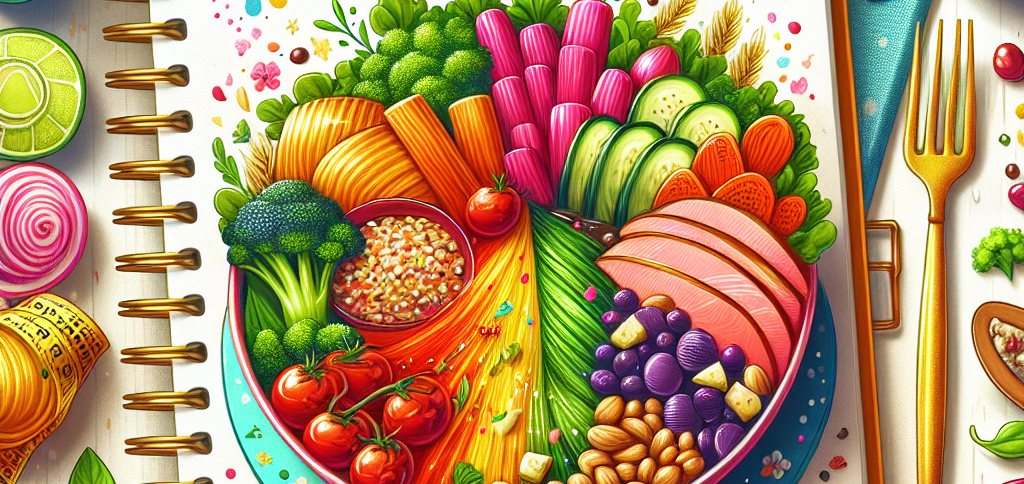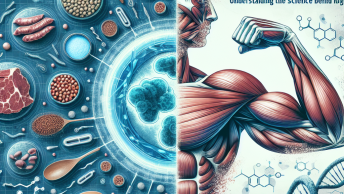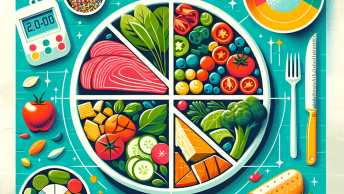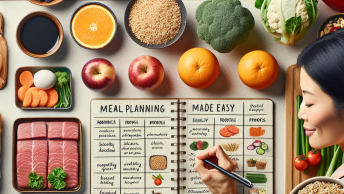When it comes to shedding those extra pounds, a well-structured meal plan can be your best friend. A fat loss meal plan not only helps create a calorie deficit but also ensures that you’re getting the necessary nutrients your body needs. Here are ten essential tips to kickstart your fat loss journey through effective meal planning.
1. Understand Your Caloric Needs
Before you can create an effective meal plan, it’s crucial to calculate your daily caloric needs. This involves understanding your Basal Metabolic Rate (BMR) and how many calories you burn through daily activities. There are numerous online calculators available that can help you determine this. Once you know your maintenance calories, aim to consume about 500-750 fewer calories daily for gradual and sustainable fat loss.
2. Prioritize Protein
Including sufficient protein in your diet is key for fat loss. Protein not only helps preserve muscle mass when you’re losing weight but also keeps you full for longer, reducing the chances of overeating. Lean proteins such as chicken, turkey, fish, legumes, and low-fat dairy should make up a significant portion of your meals. Aim for at least 20-30 grams of protein with each meal.
3. Fill Up on Fiber
Fiber is a crucial element for any fat loss meal plan. It aids digestion, increases satiety, and helps regulate blood sugar levels. Incorporate plenty of fruits, vegetables, whole grains, and legumes into your meals. Strive to include a variety of colors and types of produce in your diet to ensure you get a range of nutrients and antioxidants.
4. Choose Healthy Fats
Not all fats are created equal. While it’s important to limit unhealthy trans fats and saturated fats, healthy fats are essential for hormone production and overall health. Avocados, nuts, seeds, and olive oil are excellent sources of healthy fats. Including moderate amounts of these can not only support your fat loss efforts but also keep you satiated.
5. Plan Your Meals Ahead
Meal planning can significantly improve your chances of sticking to your fat loss goals. Set aside time weekly to plan your meals. Prepare a grocery list to avoid impulse buys that may derail your efforts. Consider batch-cooking meals or prepping individual components (like grilled chicken or roasted vegetables) to make healthy choices easier throughout the week.
6. Stay Hydrated
Hydration plays a vital role in successful fat loss. Drinking enough water can help you feel full and may prevent unnecessary snacking. Instead of reaching for high-calorie beverages, choose water, herbal teas, or flavored water with fresh fruits. Aim for at least 8-10 cups of water daily, and increase your intake during exercise or hot weather.
7. Listen to Your Hunger Cues
Developing an awareness of your hunger signals can help regulate your calorie intake. Eat slowly and without distractions to better understand when you’re truly hungry or satisfied. This mindful eating practice can prevent overeating and help you develop a healthier relationship with food.
8. Modify Portion Sizes
Even healthy meals can contribute to weight gain if portion sizes are too large. Utilize measuring cups or a food scale to familiarize yourself with appropriate serving sizes. Eating smaller portions can help control calorie intake without feeling deprived. As you become more aware, it will be easier to visualize reasonable portions, aiding in your fat loss journey.
9. Incorporate Variety
Eating the same foods day in and day out can lead to boredom and may ultimately cause you to stray from your meal plan. Incorporate a multitude of flavors, textures, and colors into your meals. Experiment with new recipes, cuisines, and cooking methods to create exciting dishes that align with your fat loss goals.
10. Seek External Help if Needed
If navigating the landscape of meal planning feels overwhelming, consider seeking assistance from professionals. For example, customizable meal plans designed by nutritionists can help you stay on track with your fat loss goals. There are various online resources available for meal planning, which can provide recipes, shopping lists, and even tips on grocery shopping. Click Here to learn more about tailored meal plans that could simplify your fat loss journey.
Conclusion
A fat loss meal plan doesn’t have to be restrictive or bland. With these ten tips, you can create a meal plan that not only aids in shedding pounds but also provides your body with essential nutrients. Remember that consistency is key, and it’s important to be patient with your progress. Modify your plan as needed and most importantly, listen to your body. Embrace the journey, and you’ll find sustainable success in your fat loss efforts.






